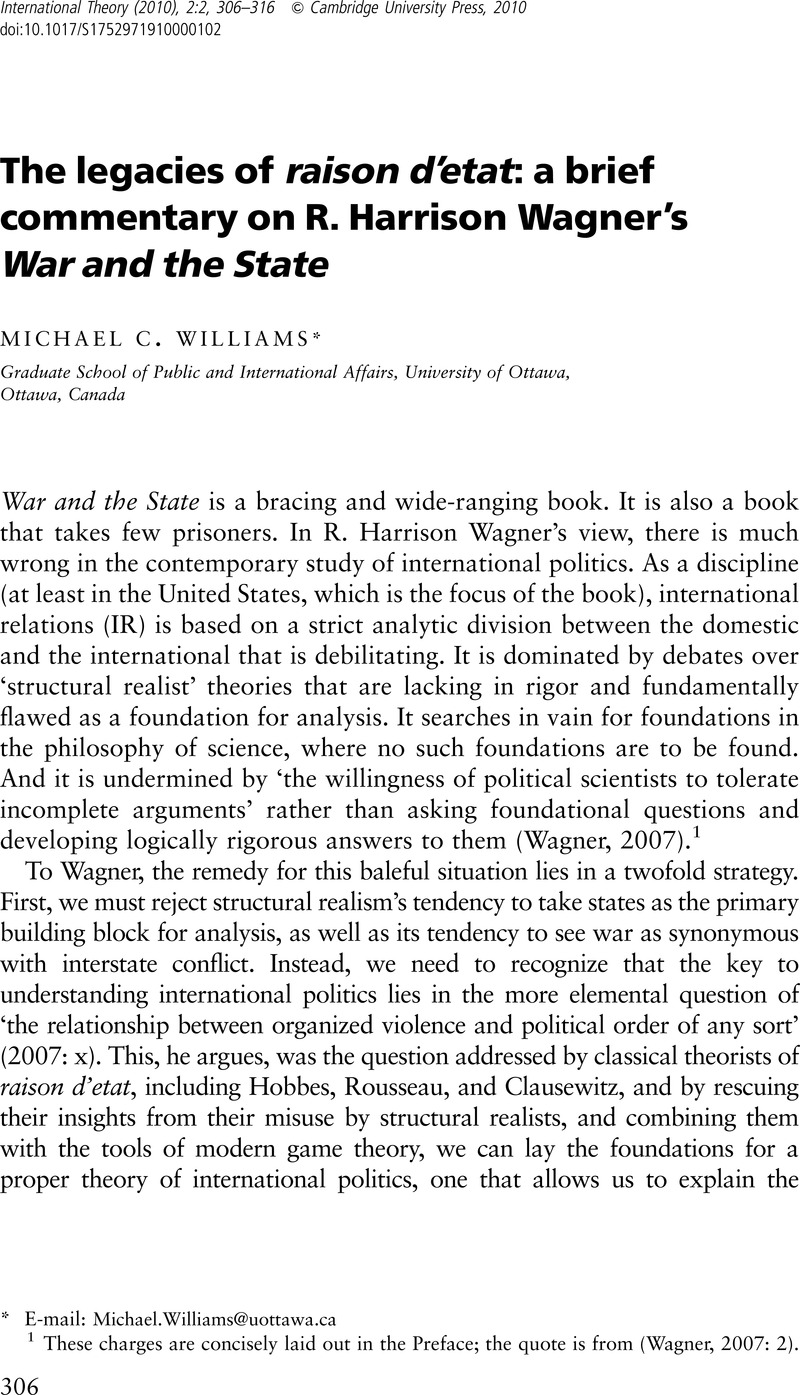Crossref Citations
This article has been cited by the following publications. This list is generated based on data provided by Crossref.
Wagner, R. Harrison
2010.
War and the State: reply to comments.
International Theory,
Vol. 2,
Issue. 2,
p.
343.
Barrinha, André
2016.
Progressive realism and the EU’s international actorness: towards a grand strategy?.
Journal of European Integration,
Vol. 38,
Issue. 4,
p.
441.





